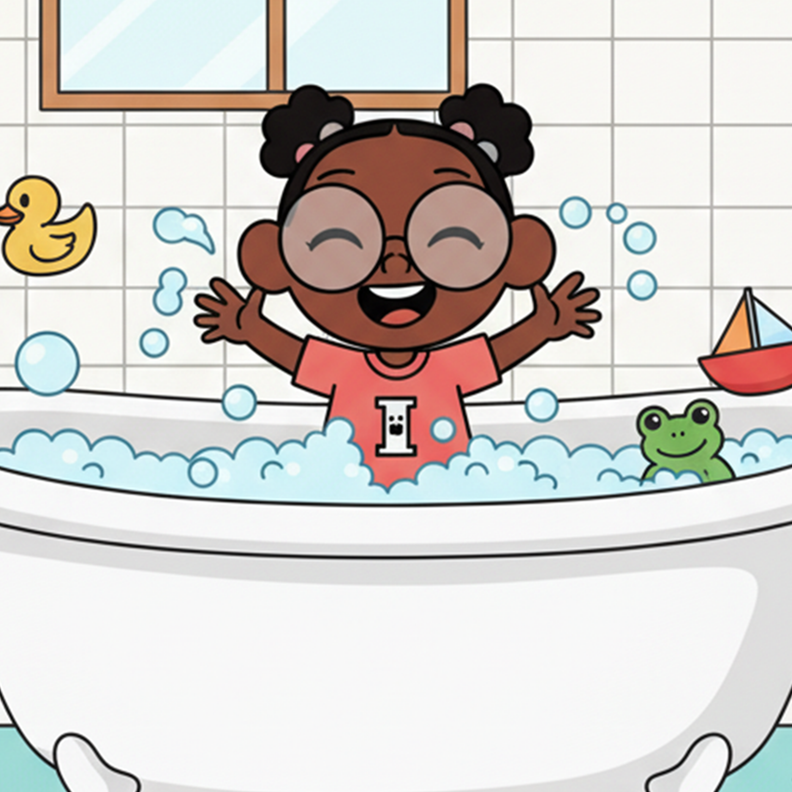Episode 3: Splashing into Physics at Bathtime
Posted on November 18, 2025 in Podcasts

Experience Eddy’s transformation from bath time dread to science teacher as the STEMIE Family Hotline guides him through using everyday toys and water play as engaging physics lessons.
Turn bath time battles into something you actually look forward to! Experience Eddy’s transformation from bath time dread to science teacher as the STEMIE Family Hotline guides him through using everyday toys and water play as engaging physics lessons. Dr. Sarah Pedonti, early childhood special education expert and parent of a child with disabilities, joins the call to explain the developmental science behind water play and shares why simple materials often work better than expensive educational toys.
About the Guest
Dr. Sarah Pedonti is an assistant professor in Birth-Kindergarten Education at Western Carolina University as well as a parent of children with and without disabilities. Her work focuses on supporting early childhood teacher candidates to implement high-quality inclusive language, literacy, and science learning environments for diverse children and families. Her research focuses on the emergent language, literacy, and STEM skills of diverse populations, including children in poverty (Head Start/Early Head Start), children with disabilities, and dual language learners (DLLs), as well as children at the intersection of those identities.
Key Takeaways
- Your infant or toddler is naturally exploring physics—the study of how things move and how energy works. They might splash water in the bathtub, which is actually exploring the physics concept of displacement.
- Don’t feel pressured to buy “science-focused toys”. Simple materials like cups or spoons can be powerful learning tools. Using familiar items also allows your child to focus all their attention on “what can this object do?” rather than being surprised by a new gadget.
- “Sportscast” children’s play! By narrating what your child is doing, you can help them move from physical actions to deeper conceptual understanding. For example, if your child is pouring water from a cup, you can comment, “The water just spilled out and made a huge splash!”.
Related Resources
Try out strategies during bathtime by checking out our early intervention cards:
- Early Intervention Card: Exploring Moving Objects During Bathtime
- Early Intervention Card: Noticing Bathtime Objects
- Early Intervention Card: Exploring Bathtime Objects
- Early Intervention Card: Exploring Water During Bathtime
For adaptation tips and ideas, visit our Guide to Adaptations
Learn more about how children show us they are engaging in STEM learning
Learn more about Physical Science: Structure and Properties of Materials


